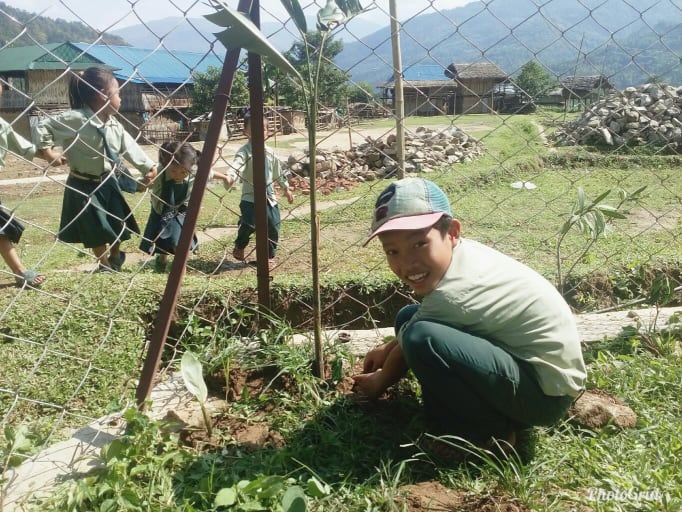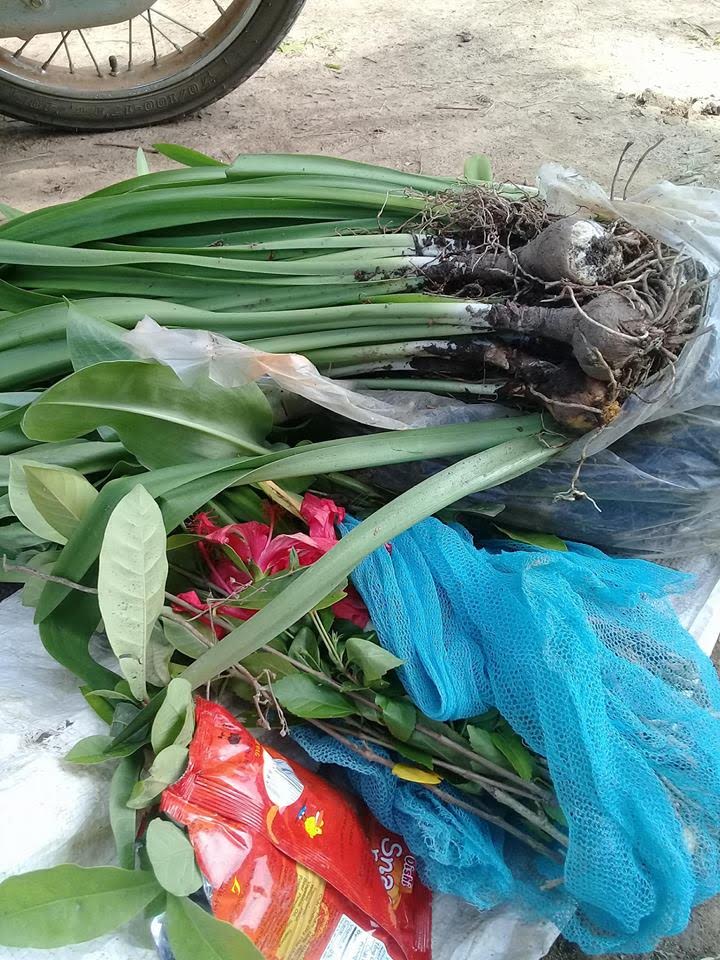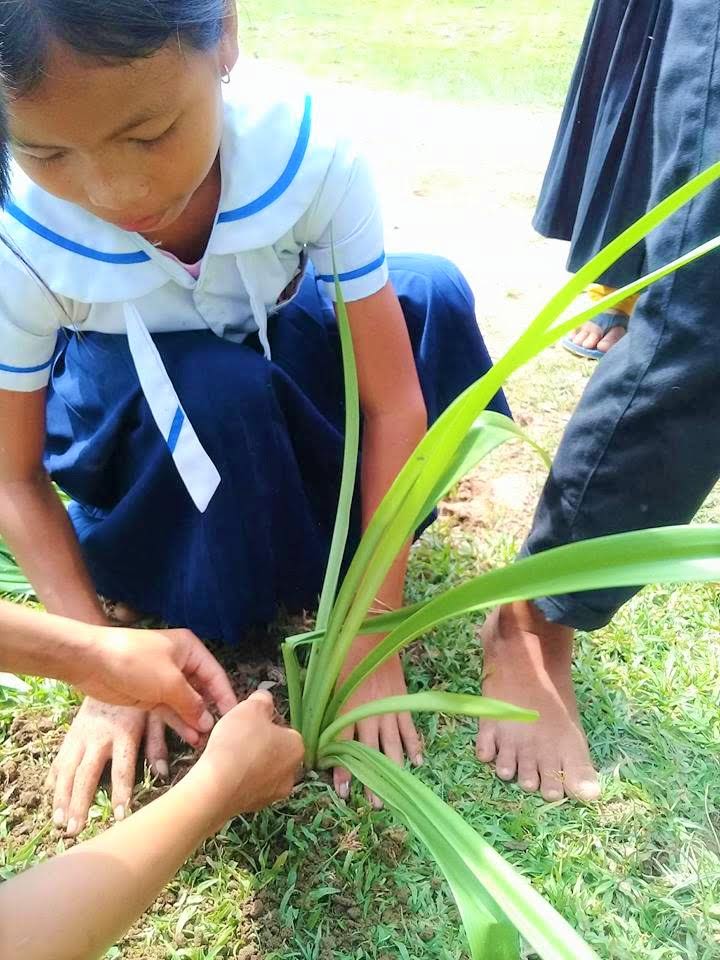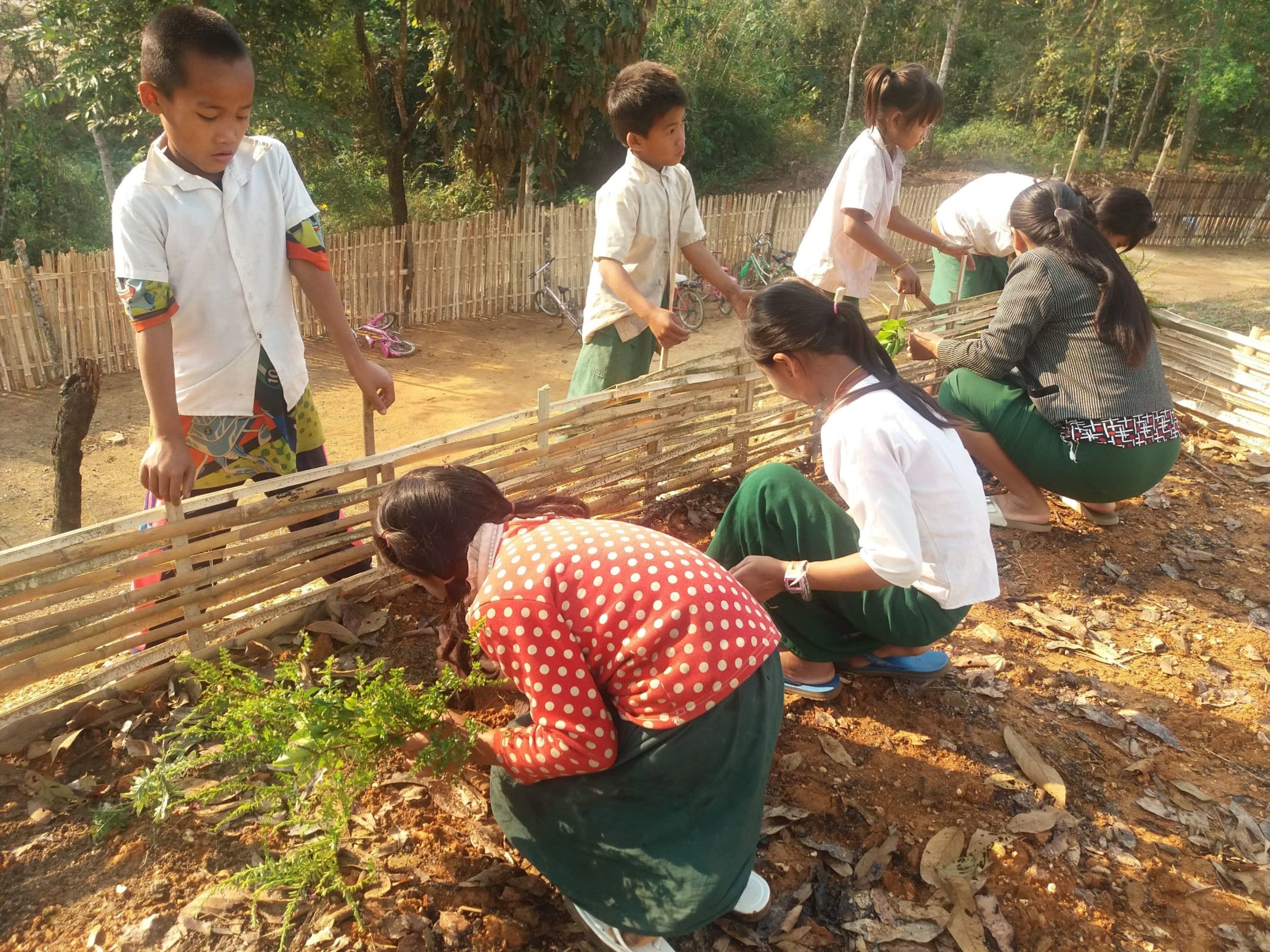Here are just a few reasons why we love these additions to our school sites.
1. LEARNING NEW SKILLS
Vegetable gardens allow students to learn essential farming skills, without taking time out of school. At Helu Besi School, Nepal, the children have been learning how to plant, care for and harvest nutritious, seasonal crops.
2. FOOD FOR THE WHOLE FAMILY
Students can take the crops grown at school home to share with their families. The students of UWS Hang Savart School, Cambodia, love incorporating what they have grown into family dinner (below). Communities also help to build the school gardens, making them a great way to get the whole family involved in school life.
3. A HEALTHY DIET = BETTER LEARNING
A better diet means students are more mentally and physically fit to learn. Students at UWS Wein Wa School, Myanmar, have more energy in lessons thanks to the nutritious vegetables they grow in their school garden.
4. CREATING BEAUTIFUL SCHOOLS
As well as providing environmental education, vegetable gardens improve the school environment. UWS Roy School, Cambodia, has a large vegetable garden next to the playground, making the school a nicer place to learn
From our work in Cambodia, Myanmar and Nepal, we know the devastating impact that pollution can have upon the environment. We have seen first hand how pollution affects the lives people growing up in rural communities, particularly when these villages are dependent on farming, fishing, and hunting to survive. That's why, this World Environment Day, UWS students decided to take matters into their own hands...
READ UWS STUDENTS TOP TIPS TO #BEATPLASTICPOLLUTION
UWS NEPAL CELEBRATES WORLD ENVIRONMENT DAY
On Tuesday 5th of June three UWS Schools in Nepal took a stand against plastic pollution as part of World Environment Day. Witnessing the extent of pollution in their community, students wanted to take action, and took to the streets. In Majhua village, pupils led a protest march against pollution with homemade banners and cardboard signs.
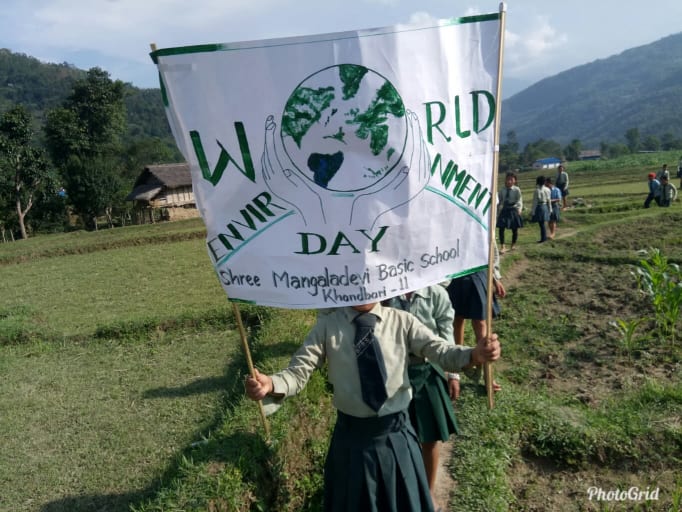
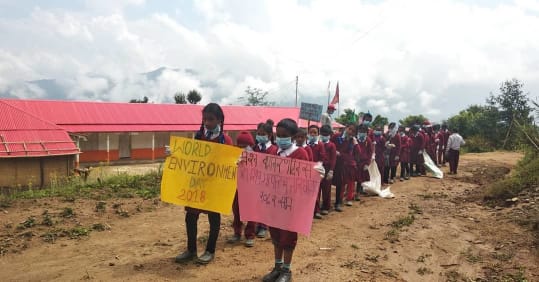
PLANTING THE FUTURE
Deforestation continues to affect life in Nepal, with 1.9% of the country's forest lost on average every year. For people living in rural communities, the impact of this on their life is huge. Healthy land that was supported by surrounding trees and once used for farming is replaced by scrubby bush vegetation. Women and children have to walk further to access good quality firewood that they can use for cooking. Flash flooding is more likely to happen due to the lack of trees.
To highlight these issues, UWS Mude School led a tree planting ceremony to celebrate World Environment Day. Saplings were planted in the school grounds by special guests from Nepal's Community Forest programme and Mude's community leaders.
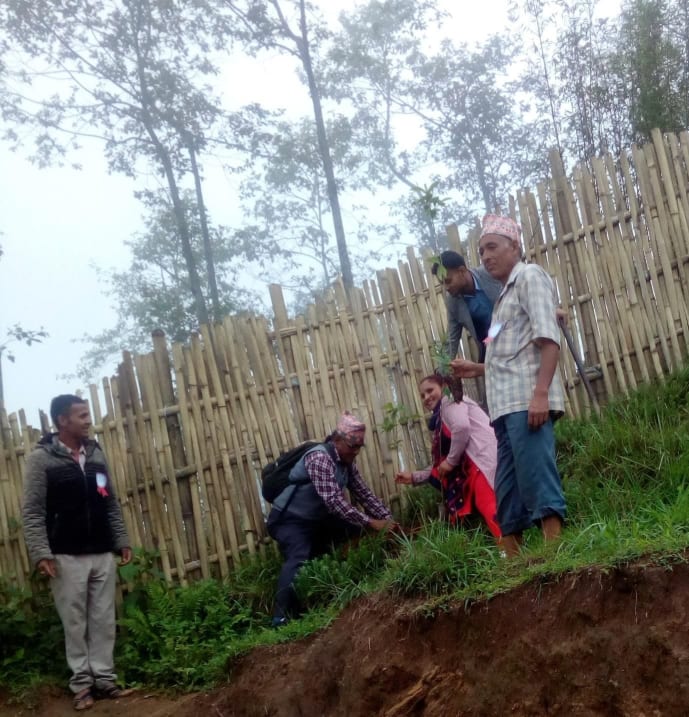
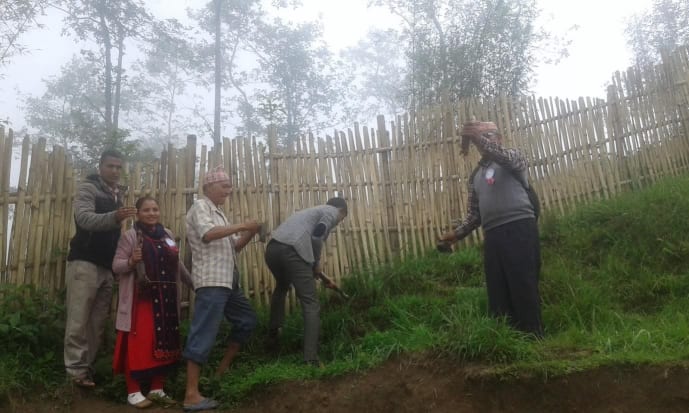
“Heavy rain almost cancelled the event but thanks to the patience of students, teachers, parents and our guests the day was a success!"
Surya Karki
DANCING AWAY THE RAIN:
UWS Mude School’s celebrations for World Environment Day also featured a dance competition, singing, and talks by pupils. Here is a report on the day by our Country Director, Surya Karki:
“Loud claps from the audience encouraged children taking part in the dance competition to keep going and brought a smile to everyone’s face. Our chief guest (Gopal Katuwal, President of Community Forest) spoke on the need to give serious attention towards protection of environment. He appealed to everyone to work towards a cleaner, greener and sustainable world by creating awareness of environmental issues like plastic pollution and deforestation. The event ended with lunch and prizes given to students from Gopal and our president of the School Support Committee. It was a fantastic day full of inspiring words on how we can take care of the environment, however it was the students who were the real inspiration!”
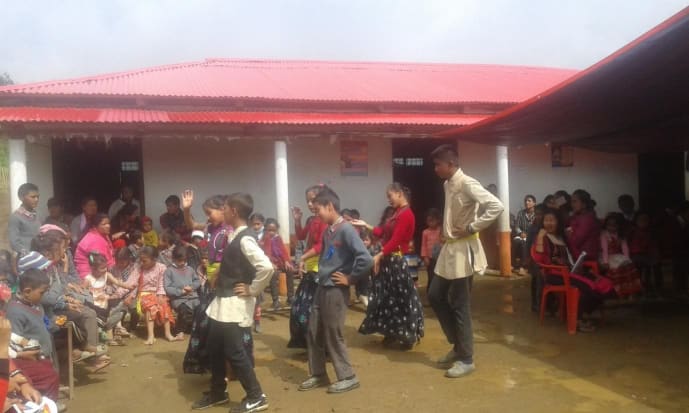
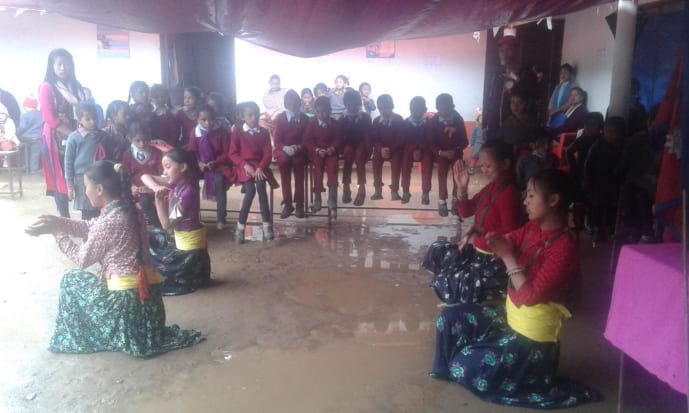
“Investment in the early years requires access to good quality pre-primary education…. It is time to take a good look at the numbers and commit to urgent action. If [donors] don’t, millions of children will fail to reach their full potential."
Professor Pauline Rose, Director of the Real Centre, University of Cambridge
GLOBAL SHORTFALL
Kindergartens are vital for child development. They create effective learners, prepare children for primary school, and have huge impact on their later success in life. However, since 2002,the amount of aid given to pre-school education has drastically fallen. New research by the University of Cambridge shows that 250 million children aged five years or under, are at risk of failing ‘to reach their full potential’ as kindergarten programmes are increasingly underfunded. We know that these programmes are often overlooked within early childhood aid budgets since their impact is ‘less immediate and visible’, but we believe they are crucial for long-term development.
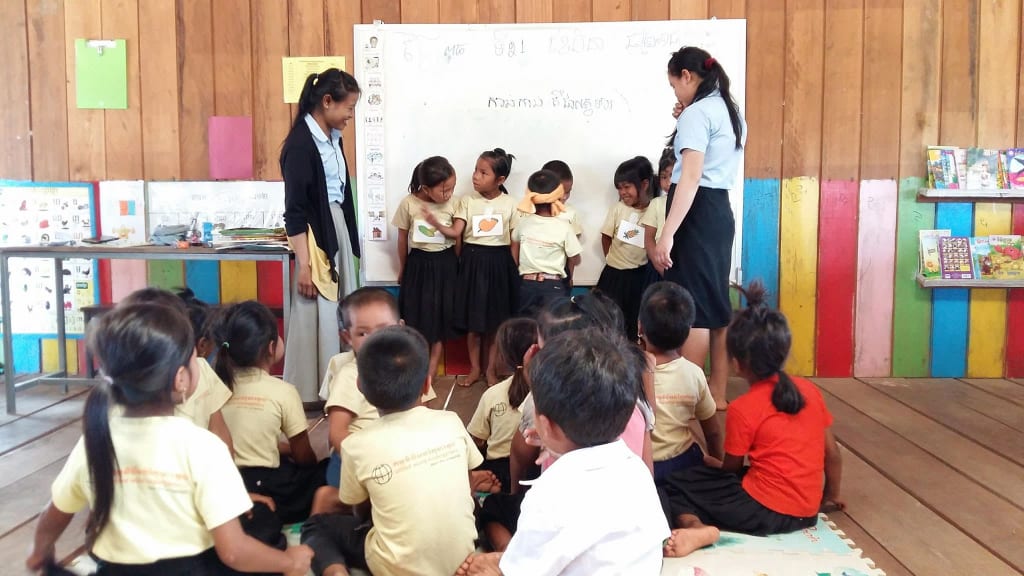
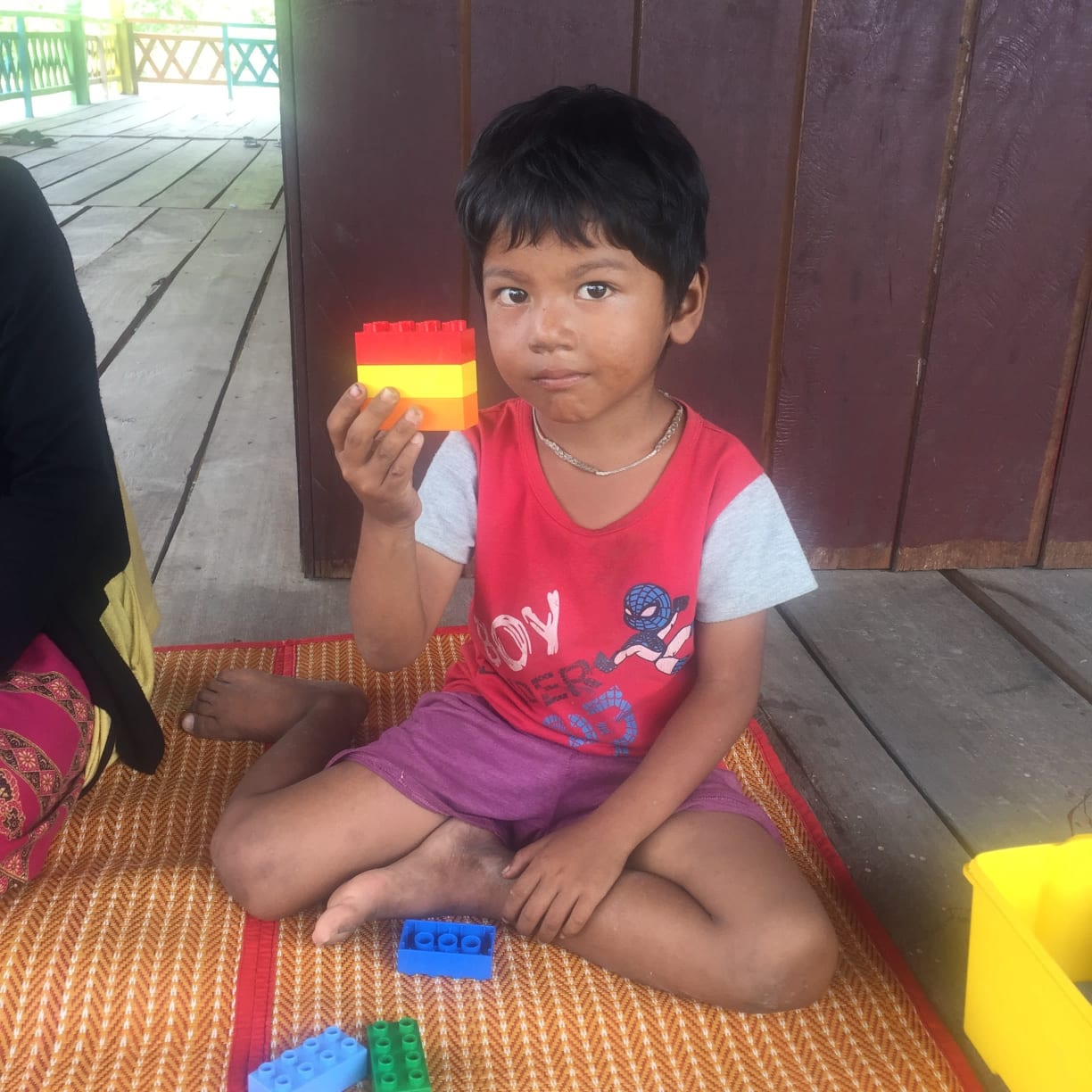
IMPORTANCE OF PRE-SCHOOL EDUCATION
Children who attend some form of pre-school education are more likely to enrol in primary school and remain in education throughout their teens. Studies by Global Education Monitoring Report have even shown that children who have been to a kindergarten performed better in speaking, reading, writing and mathematics by the second grade of primary school than those who did not.
In Cambodia, we often saw older students at our UWS Schools bringing their younger siblings to lessons, sometimes even sitting them on their knee while they tried to work. Our kindergartens provide these communities with a safe and stimulating space for the tiniest members of the family, giving older children the chance to focus on their studies.
UNITED WORLD KINDERGARTENS (UWK)
In 2016, we launched UWK in Cambodia and now have nine operational kindergartens attached to our community schools. So far, over 300 children have been enrolled at a United World Kindergarten, a third of which have now graduated into a primary school.
“All of our Kindergarten teachers are trained to take a holistic approach to education, incorporating resources like lego bricks and duplo into lessons, as well teaching basic numeracy and literacy through games, songs, and art.”
Gemma Barker, UWS Associate Director for Programmes
Each of the kindergartens is built to a standard UWS model. From the brightly coloured walls and fenced wooden platform that surrounds the building, every aspect of the design has been chosen to stimulate independent learning and creativity. Each kindergarten also has a comfortable reading corner, a kitchen to supply the children with a balanced breakfast, and washing facilities to help teach good hygiene routines.
NEXT STEPS
In light of this research, we believe UWK is more important than ever and can go some way towards tackling the global pre-primary education deficit. We have already secured funding for a further kindergartens – taking our total 10 – and are confident we can expand our programme into more schools with your support.

